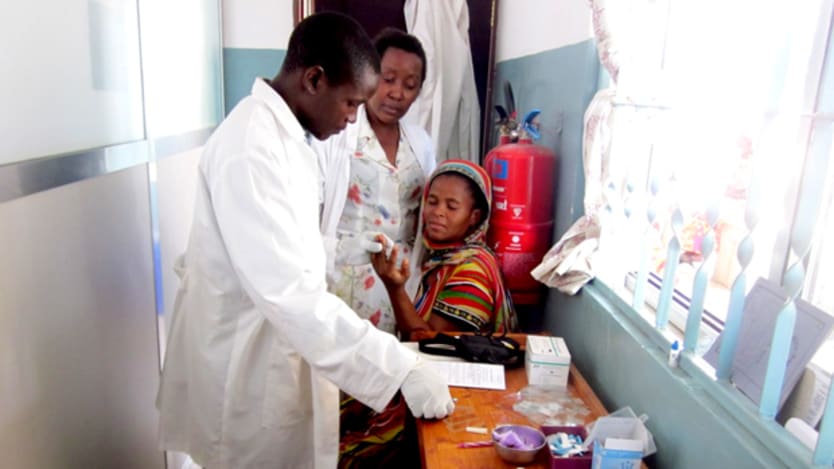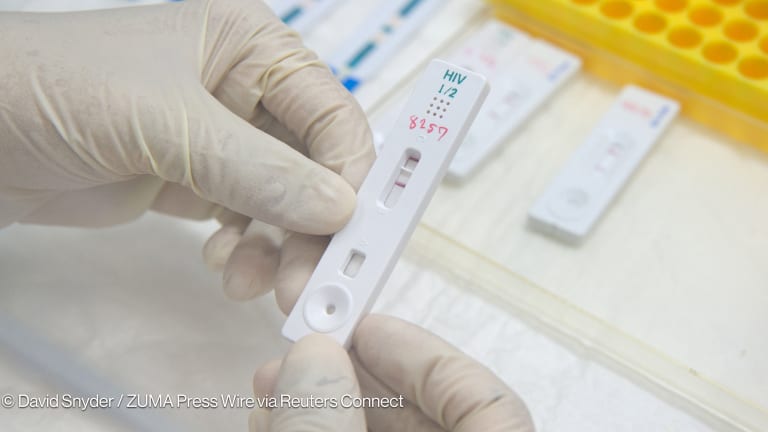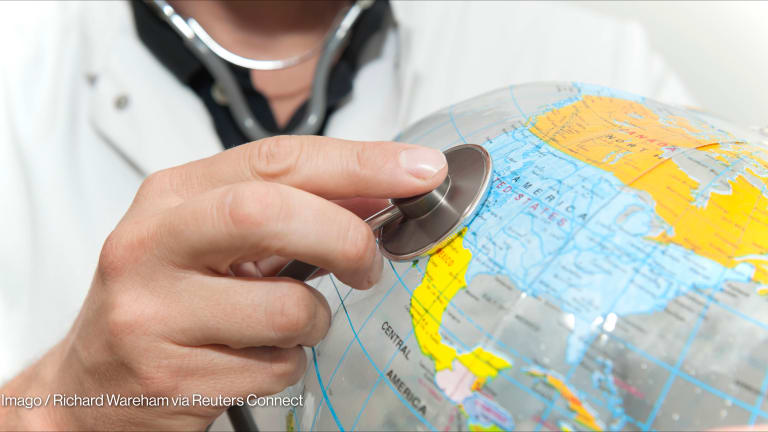
World Health Day is a chance to reflect on the progress we’ve made since the occasion was first marked in 1950. But it’s also a moment to reflect on the huge challenges that remain. One child dying from preventable causes is one too many — but in reality, 6.6 million die in this way each year.
The approaching deadline for the Millennium Development Goals presents us with a real opportunity. Now — in the final push toward those targets and in the design of those that will follow — is the time for bold steps toward realizing the right to health for all. That means deep reflection on how we need to shape our approach to global health going forward. For me, one word stands out: integration.
Last year, I visited a school project which Plan International helped set up in Tanzania. It was great to see the progress the children were making in their learning. As I left, though, I saw a powerful reminder of why education and health programs must not exist in silos. A group of early teenage girls were gathered outside around a large white van. It was a mobile health clinic, visiting the school as part of the government’s efforts, supported by Plan, to provide universal health coverage. The girls were receiving tetanus vaccinations.
This, I thought, was a simple but excellent lesson in what you can achieve by "piggybacking" health care onto existing infrastructure such as schools. It soon dawned on me that it was only girls — aged about 12 to 14 years old — receiving the vaccinations, which were preparing them for imminent childbirth.
An integrated approach
The next stage, I believe, would be for the same mobile unit to urgently provide for these girls’ family planning, social welfare advice and other services. That’s because, if there’s one lesson I’ve learned from the MDGs, with all the momentum and advancements they’ve brought, it’s that we need to be more integrated in our approach — both within the health sphere and between sectors.
Nkosazana Dlamini-Zuma, chairperson of the African Union Commission, summarized this point just last week at the EU-Africa summit in Brussels.
“Health encompasses every aspect of development,” she said. “Some women die, not because there's no clinic, but because there are no roads so they give birth on the way to hospital.”
So while UHC is a crucial component to realizing the right to health, it cannot be seen in isolation. When we talk about education, we have to talk about health and vice versa — the two are intrinsically linked. The right to health is also inseparable from the right to adequate food, freedom from discrimination, and the right to clean water and adequate sanitation. This is why we set up Action for Global Health in 2006, to go beyond the competition within the health community and respond to 21st century needs.
The post-2015 open working group recently published the second draft of its focus area document, identifying the many interlinkages between health and other sectors. But what might that mean in practice? How will the future framework reflect these links? For me, it’s no longer the time to think in the abstract about why a holistic strategy is needed. That much is clear. Now is the time to think about how we achieve it.
Moving from the why to the how
First, across government and NGOs we need to push for a "health lens," which means that as well as building a strong health care system, we respond to the underlying burden of disease and ill health across various social and environmental determinants. This means investing in the full spectrum of public services — and doing so with a laser-like focus on the health impacts of this spending.
Second, governments should live up to their role as duty bearers, making investments — and ensuring high-quality programming — in social services that greatly impact on health, such as water and sanitation, working conditions, housing quality, healthy behavior, nutrition and quality education.
Third, community participation in program design is key. Funding integrated approaches at the community level demonstrates what works in lived realities. For sustainable, long-term health interventions that work, this is vital. Critically, we also reach the most marginalized this way.
Finally, we need a renewed, specific focus on child health. Fulfilling our responsibility to future generations by reducing child mortality and improving child health is fundamental to global development and economic growth. In this regard, nutrition should be a central part of the future framework. Good nutrition — particularly in the first 1,000 days — is absolutely critical to the long-term health and productivity of any individual. I would also argue that the health needs of girls, particularly as they reach adolescence and begin to face challenges unique to their gender, such as female genital mutilation and early forced marriage — and the disastrous health consequences these can bring — must be specifically considered.
'Join up and scale up'
Today, encouragingly, interest in integrated approaches is increasing — as decision-makers acknowledge that integrated programs can prove efficient, cost-effective and provide more holistic services for those who need them most. But we must do more to tangibly highlight and explain how effective this can be in improving health.
Governments entering post-2015 negotiations must be on board, and so the 2010 call by Action for Global Health to join up and scale up is therefore more relevant than ever. We believe that everyone — irrespective of their status — should have equitable access to fully funded strong health systems, free from the burden of financial hardship.
More than 60 years on from the first World Health Day, we live in times of great uncertainty. But that should not obscure the fact that the world has sufficient resources and tools to bring child deaths from unpreventable causes down to zero.
Let’s hope that the most vulnerable and marginalized can count on the political determination of world leaders together to build a 21st century in which no one is left behind.
Join the Devex community and access more in-depth analysis, breaking news and business advice — and a host of other services — on international development, humanitarian aid and global health.
Search for articles
Most Read
- 1
- 2
- 3
- 4
- 5








